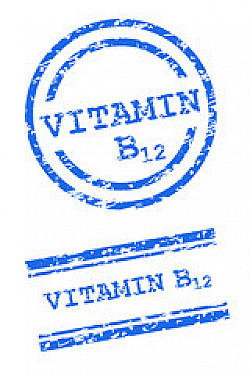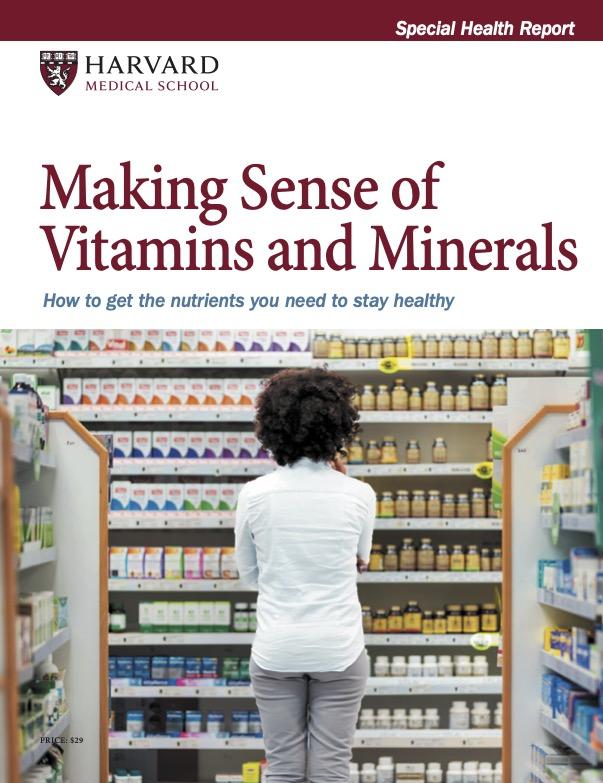Calcium and heart disease: What's the connection?
Best known for boosting bone health, calcium also plays a role in diagnosing — and preventing — heart disease.
- Reviewed by Christopher P. Cannon, MD, Editor in Chief, Harvard Heart Letter; Editorial Advisory Board Member, Harvard Health Publishing

One test doctors use to better understand a person's risk of heart disease is a coronary artery calcium scan, a special type of CT scan. The test measures the amount of calcium in the walls of the heart's arteries to generate a calcium score. The higher the score, the greater the risk of having a heart attack.
Calcium makes up just a small part of the harmful buildup (known as plaque) that narrows the heart's arteries. "Plaque also contains cholesterol, inflammatory cells, and scar tissue," explains Dr. Rhanderson Cardoso, a cardiologist at Harvard-affiliated Brigham and Women's Hospital. On a CT scan, the cholesterol is not visible, but the calcium is easy to see. Because there's a close correlation between the amount of calcium and the amount of plaque, a calcium score is a good indicator of plaque inside the arteries.
Still, you might wonder — as Dr. Cardoso's patients and others have — if the calcium in your diet or from the supplements you take affects your calcium score. Research on this topic has been somewhat conflicting, but a study in the July 2024 issue of JACC Advances provides added clarity.
Measuring calcium
The findings come from 1,914 people from the diverse and long-running Atherosclerosis Risk in Communities study, which recruited people ages 45 to 64 in the late 1980s. Researchers were able to estimate how much calcium the participants typically ate based on detailed diet questionnaires done when they first enrolled and again 10 years later.
About 20 years after the start of the study, participants underwent CT scans that measured calcification in the coronary arteries, as well as in the aorta, aortic valve, and mitral valve, where calcium may also accumulate. Researchers found that people who consumed the highest amounts of calcium had less calcification in their coronary arteries (as well as in parts of the aorta and aortic valve) compared to people who consumed the lowest amounts of calcium.
These results are consistent with other well-done research showing that dietary calcium is beneficial, says Dr. Cardoso. "Calcium helps lower blood pressure, possibly by improving the function of the lining of the blood vessels," he says. It's one reason the DASH diet (which stands for Dietary Approaches to Hypertension) includes two servings of low-fat, calcium-rich dairy foods per day.
|
Selected calcium-rich foods |
|
|
Food and serving size |
Calcium (mg) |
|
Yogurt, plain, low-fat, 1 cup |
448 |
|
Tofu, firm, made with calcium sulfate, 4 ounces |
434 |
|
Almond milk, unsweetened, 1 cup |
422* |
|
Collards, frozen, cooked, 1 cup |
357 |
|
Oat milk, unsweetened, 1 cup |
338* |
|
Sardines, canned, with bones, 3 ounces |
324 |
|
Milk, 1% milkfat, 1 cup |
310 |
|
Ricotta, whole-milk, 1/2 cup |
289 |
|
Greek yogurt, plain, low‑fat, 1 cup |
262 |
|
Cheese, mozzarella, 1 ounce |
207 |
|
Salmon, canned, with bones, 3 ounces |
181 |
|
Kale, cooked, 1 cup |
177 |
|
Bok choy, fresh, cooked, 1 cup |
158 |
|
*Amount varies among different brands. |
|
Getting enough calcium
According to diet surveys, many Americans (especially older adults) fall a bit short of suggested calcium intake levels. The latest data suggest that people ages 60 and older consume an average of just 875 milligrams (mg) of calcium per day, instead of the recommended 1,000 mg (for men ages 51 to 70) or 1,200 mg (for women ages 51 and older and men ages 71 and older).
"I tell my patients to make sure they're getting adequate amounts of calcium from their diets," say Dr. Cardoso (see "Selected calcium-rich foods"). In the United States, nearly three-quarters of dietary calcium comes from dairy products and foods featuring dairy.
People who follow a vegan diet, which excludes dairy and other animal-based foods, may want to consult a dietitian to make sure they're getting enough calcium, says Dr. Cardoso. However, many brands of almond milk, oat milk, or other plant-based milks are fortified with calcium.
What about calcium supplements, which are often recommended for postmenopausal women to help prevent osteoporosis? Although some research suggests a link between high-dose (1,000 mg daily) calcium supplements and heart disease, other research does not. Still, it's best to get your calcium from food. Avoid supplements unless your doctor recommends one, and many experts advise no more than one 500-mg pill per day, taken with food to improve absorption.
Image: © photka/Getty Images
About the Author

Julie Corliss, Executive Editor, Harvard Heart Letter
About the Reviewer

Christopher P. Cannon, MD, Editor in Chief, Harvard Heart Letter; Editorial Advisory Board Member, Harvard Health Publishing
Disclaimer:
As a service to our readers, Harvard Health Publishing provides access to our library of archived content. Please note the date of last review or update on all articles.
No content on this site, regardless of date, should ever be used as a substitute for direct medical advice from your doctor or other qualified clinician.
















